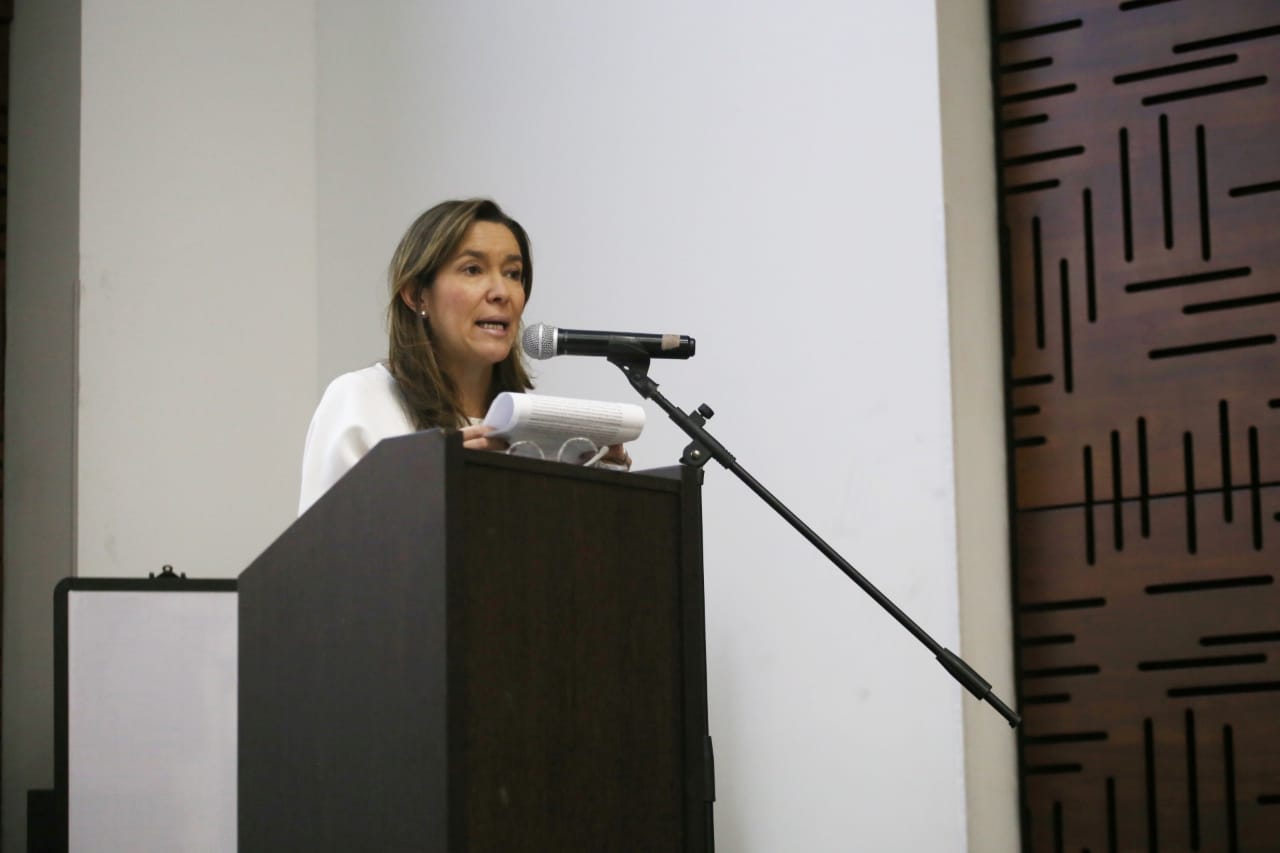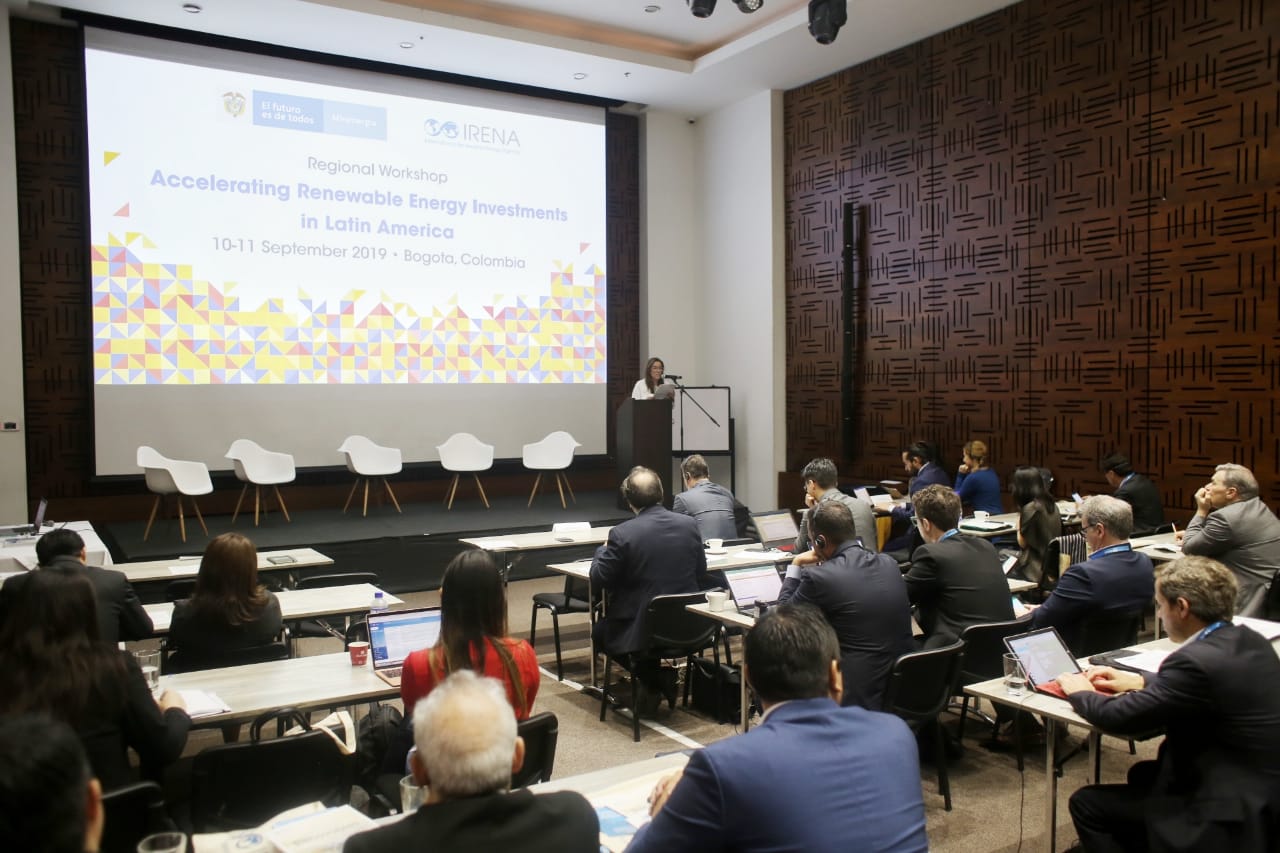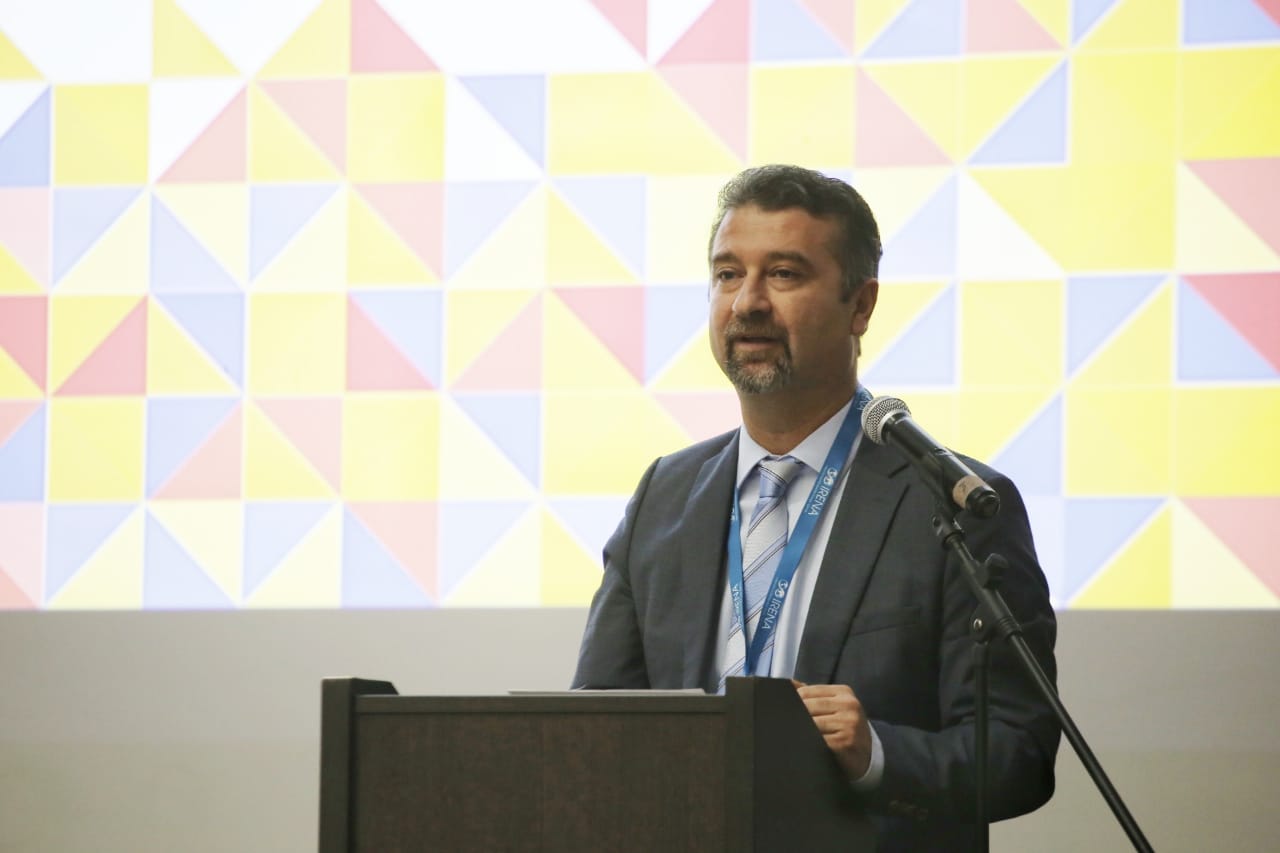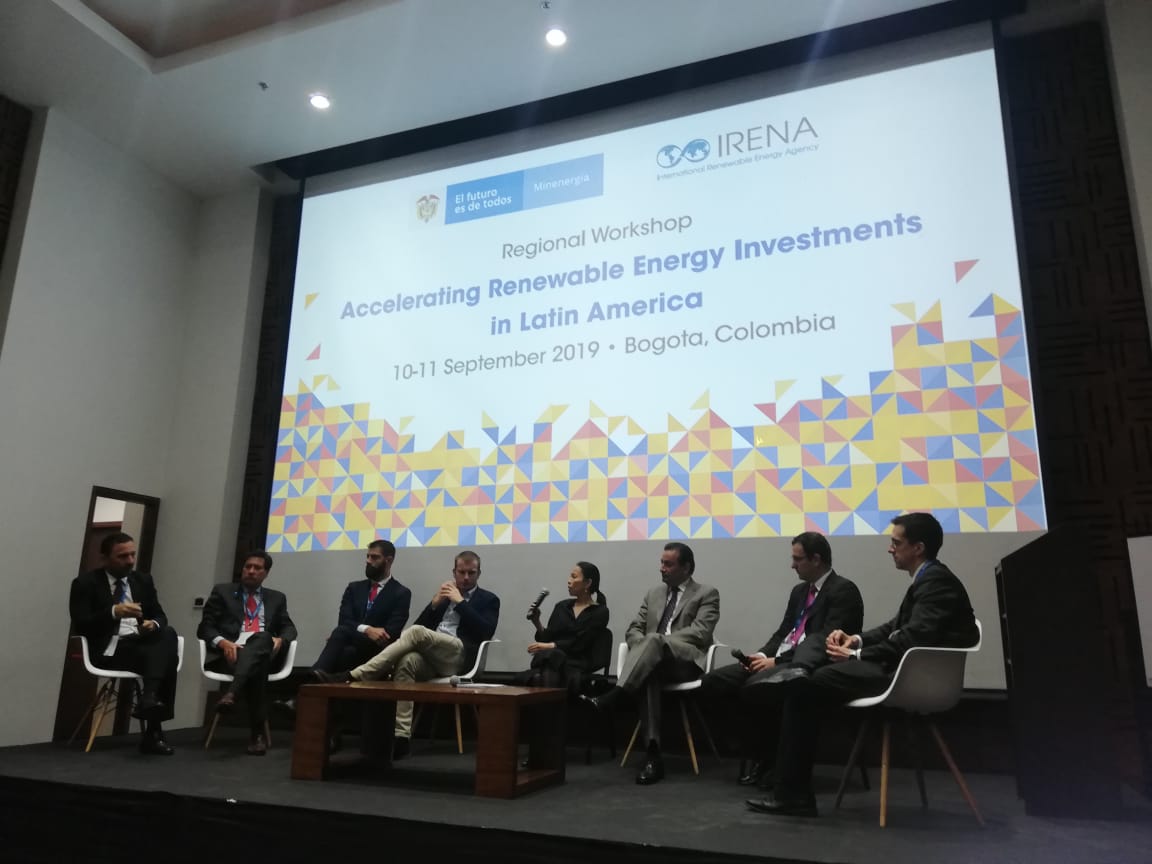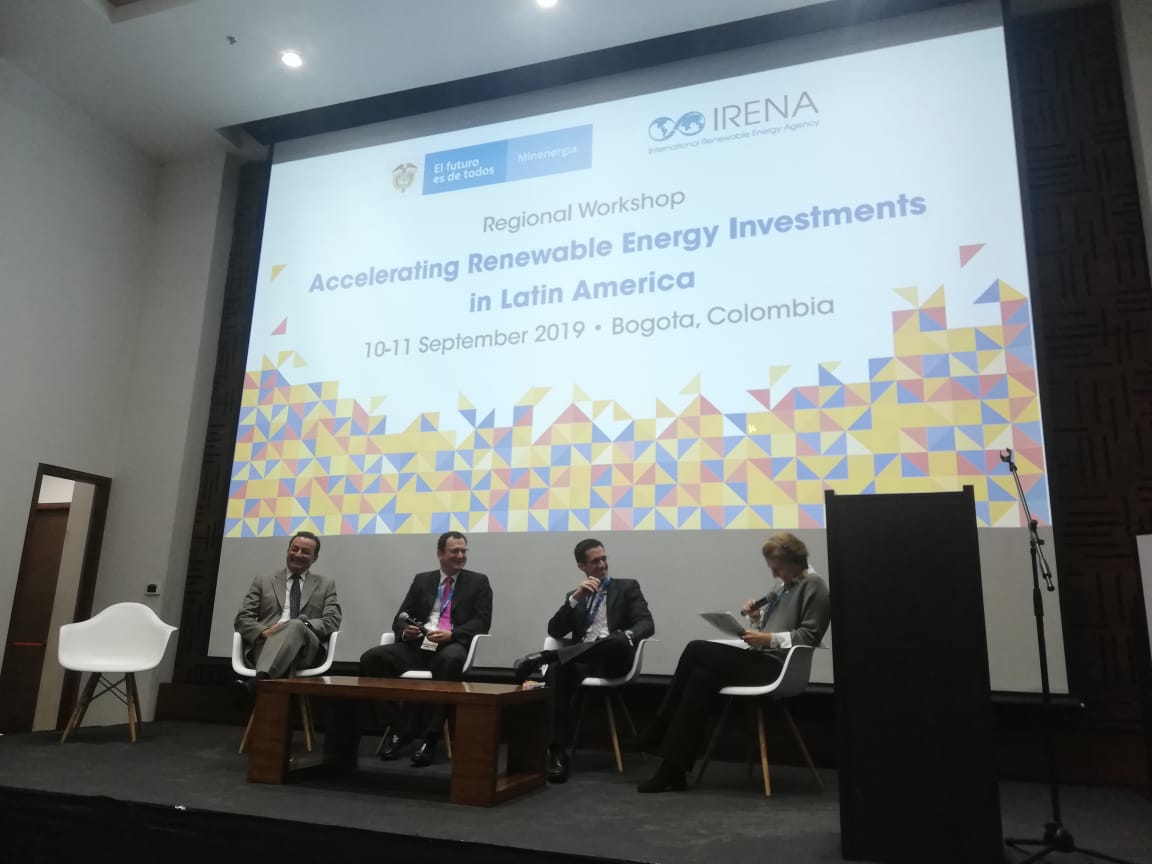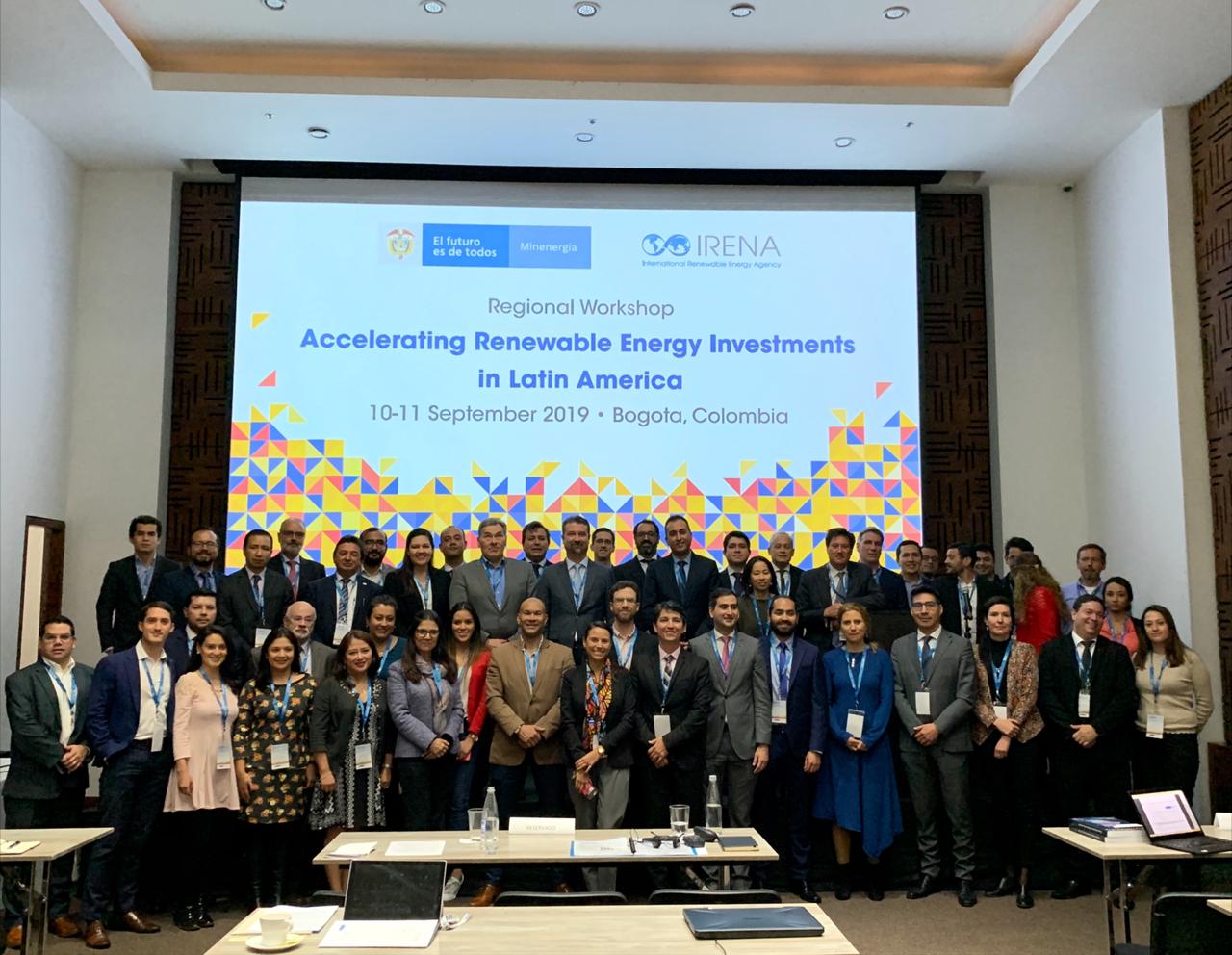
Regional Workshop on Accelerating Renewable Energy Investments in Latin America
Background
Across Latin America, countries are facing rapid growth in energy demand. By 2030, electricity consumption is projected to rise by more than 70% as energy intensive industries expand and rising middle-classes purchase more household appliances. The region is also confronting energy security challenges amid increasing climate impacts. This imperative to decarbonise, together with national energy security concerns, in the context of rapidly falling costs of non-hydropower renewables, provides a compelling case for broader renewable energy development in Latin America.
Since the late 2000s, Latin America has seen an accelerated and more diversified development of renewable energy sources, favoured by the convergence of overall drivers at the crossroads of energy security, economic competitiveness, and social and environmental sustainability. The region derives more than 200 gigawatts (GW) of its power (56% of the total) from renewable sources, mainly large-scale hydropower and biomass. More recently, countries have begun deploying increasing levels of solar, wind and geothermal power, which total over 10 GW of installed capacity.
A significant uptick in renewable energy investment, which exceeded USD 16 billion by 2015 (or about 6% of the global total) has fuelled this clean energy growth. Between 2010 and 2015, total investment in renewable power generation in the region reached nearly USD 120 billion, placing several countries in Latin America among the top 10 largest renewable energy markets globally.
To accelerate this growth, the role of effective, enabling policies are central to renewable energy investment in countries of the region. IRENA’s Regional Market Analysis for Latin America found that the renewable energy policy landscape is marked by increasing political commitment, diversity and sophistication, with policy support for renewable energy found in virtually all countries in Latin America. Moreover, the region demonstrates that there is no one-size-fits-all policy mix, and that regulatory stability and transparency are essential to enable the further development of market-based financing schemes for renewables.
When the enabling framework is in place, public financing institutions can leverage the participation of private institutions in the capital mix of renewable energy investments through a range of financial instruments, such as dedicated credit lines and guarantees to mitigate lending risks, particularly in Latin American countries where there is already some interest from private investors in the sector. In this context, public financing institutions are playing an important role in promoting investment in renewable energy in the region, through the provision of loans for the large-scale deployment of renewable energy in some countries, by helping advance public policy goals such as the development of domestic markets or the creation of local value chains, and by catalysing financing for renewable energy projects.
Ensuring adequate project planning is another critical aspect of the renewable energy project cycle in Latin America. This is often a bottleneck for scaling-up renewables in the region, and requires technical assistance and project development support. In addition, project developers can benefit from an increased access to, and utilisation of, project facilitation to help establish pipelines of bankable projects in Latin America.
Objectives & Participants
IRENA, in collaboration with the Ministry of Mines and Energy, Colombia, organised a workshop in Bogota, Colombia on 10-11 September 2019 to explore the current renewable energy policy landscape in Latin America, the growing role of public and private financing for renewables, and the available project facilitation tools for countries in the region.
The workshop targeted participants from energy policymaking institutions and regulatory bodies, as well as further energy stakeholders such as financiers and project developers.
The main objectives of the workshop were to:
- Share experiences, disseminate global best practices and stimulate dialogues on effective and efficient renewable energy policy and regulatory schemes that promote investment in renewables, with a focus on [renewable energy target setting, auction design, grid access policies, blending mandates and various fiscal incentives];
- Enhance understanding in the region of the role public financing can play in advancing public policy goals (e.g. development of domestic markets), creating local value chains, and catalysing private finance, including risk mitigation measures aimed at mobilising private finance;
- Examine prevailing challenges for renewable energy entrepreneurs in Latin America, and assess the potential for replicating IRENA’s Entrepreneurship Support Facility in the region;
- Gather feedback from participants on key challenges to renewable energy investment in Latin America to help define future activities and assistance from IRENA at the regional and country-level.
See the workshop's concept note and agenda.
Presentations
Opening Session
Presentation on the global energy transformation and the Regional Action Plan for Latin America, Fabian Barrera, IRENA;
Session 1: Enabling policy and regulatory frameworks
Presentation on policy and regulatory design to promote renewable energy investment, Diala Hawila, IRENA
Session 2: Financing renewable energy projects
Presentation on the renewable energy investment landscape in Latin America, Alfonso Blanco, OLADE
Presentation on the link between financing, quality and sustainability for successful renewable energy projects, Oscar Gonzáles, KfW
Session 3: Catalysing private finance to scale up renewable energy investment
Presentation on introduction to renewable energy risk mitigation, Serkan Ata, IRENA
Session 4: Renewable Energy PPA design and documentation standardisation
Presentation on renewable energy PPA design and documentation standardisation, Serkan Ata, IRENA
Session 5: Building renewable energy project pipelines in Latin America
No presentations
Session 6: The role of entrepreneurship in renewable energy deployment
Presentation on Supporting Entrepreneurship Development on Decentralised RE Solutions, Gurbuz Gonul, IRENA
Presentation on Colombia E2 Entrepreneurship Programme, Juan Camilo Vallejo, Fenoge
